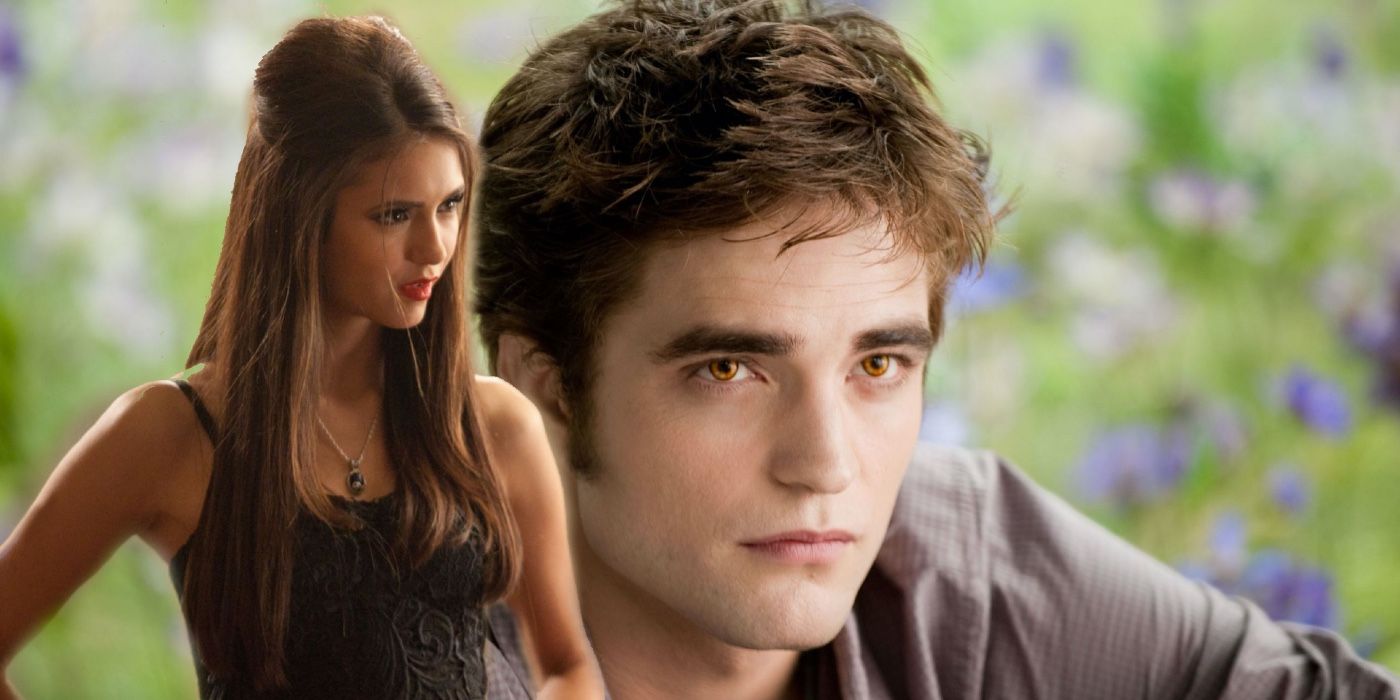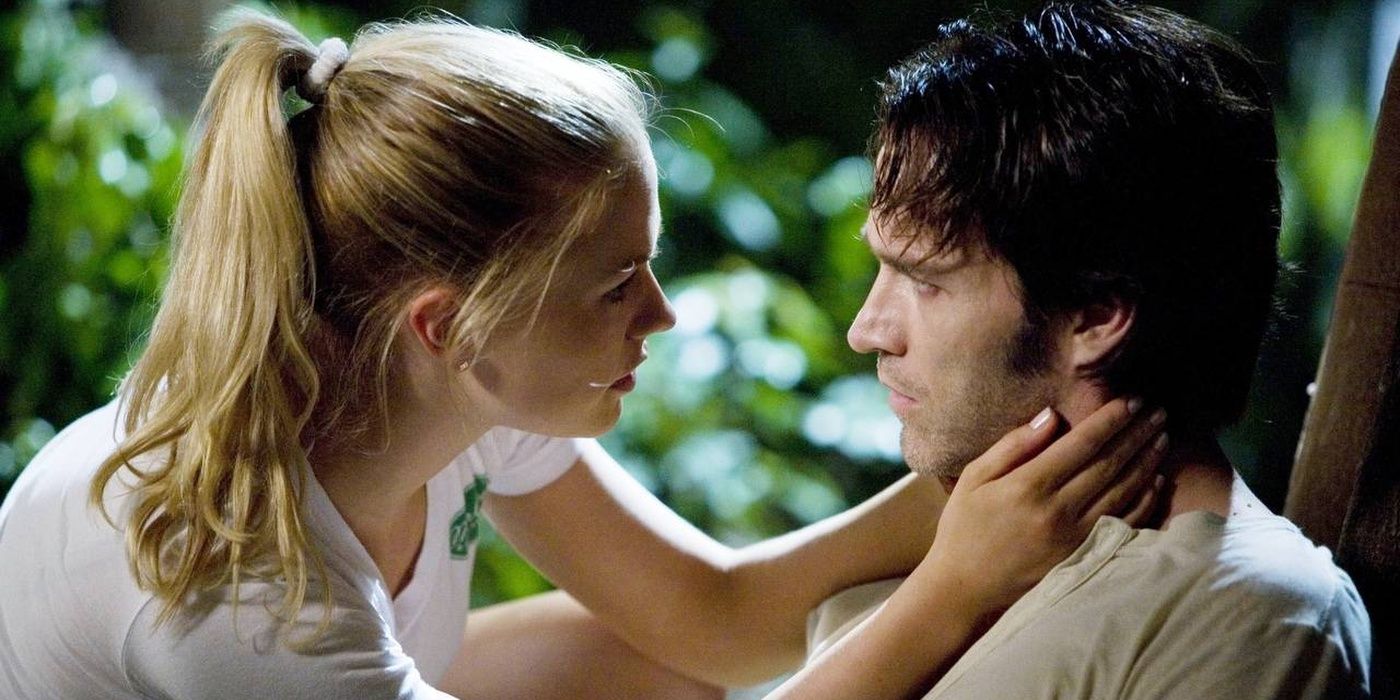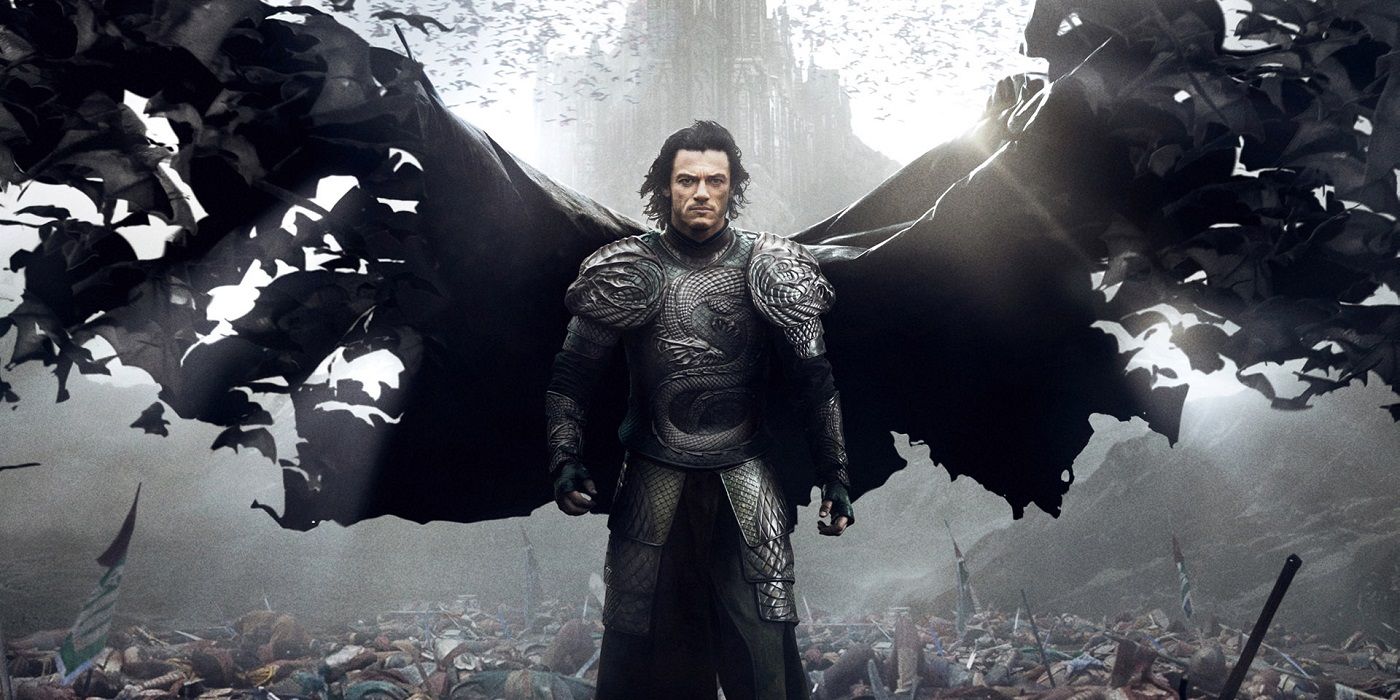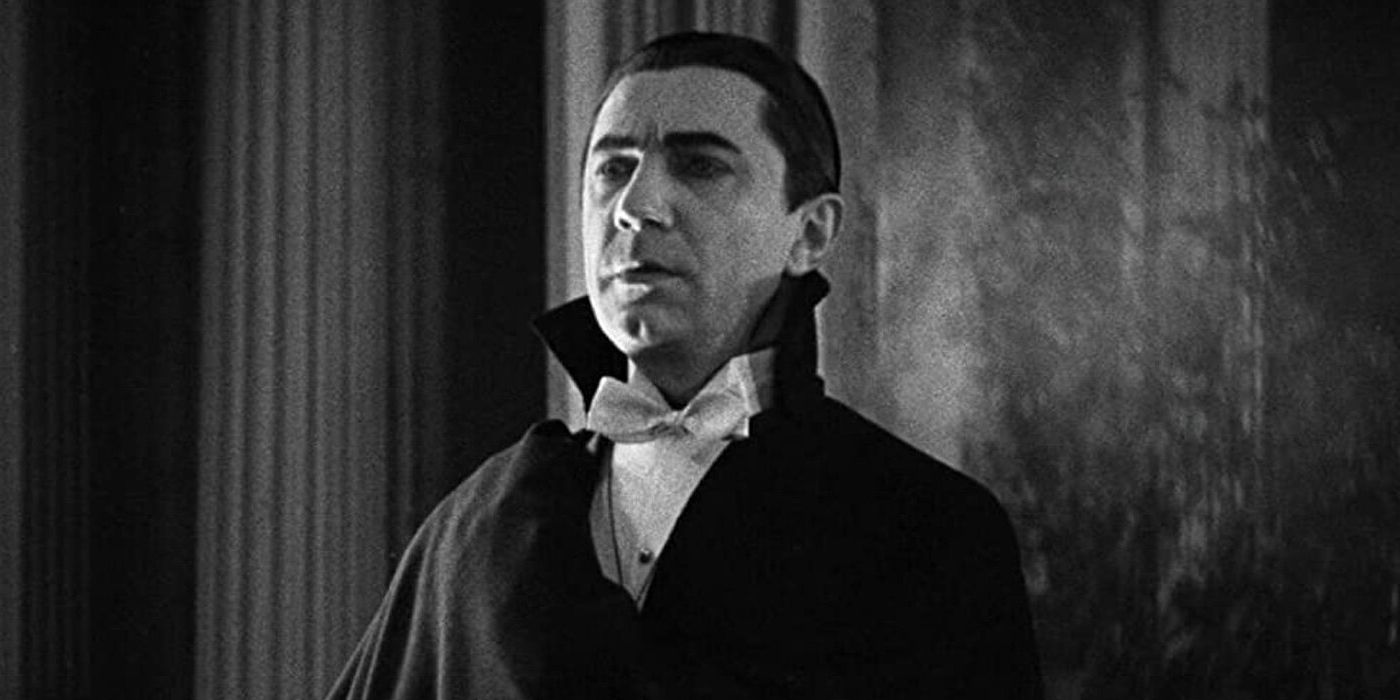Vampire movies and TV shows such as The Vampire Diaries, True Blood, and Twilight were once driving the pulse of horror media during the 2000s and 2010s—they've since dwindled in popularity from which the classic monsters have never fully recovered.
Since the days of the silent film era with Nosferatu and Count Orlok, vampires have been a staple of horror cinema. Equal parts romantic and terrifying, they have taken many forms throughout the years; the 1931 Universal adaptation of Bram Stoker's novel, Dracula—with Bela Lugosi as the titular character—became one of the most prominent and immediately recognizable. Dracula—in many ways—became the template for most other vampire movies that followed. Though many of these films chose to adapt the character of Dracula, causing the character to become the most adapted character in fiction other than Sherlock Holmes, there were some deviations.
Vampire movies split largely into two categories: the romantic vampire and the monstrous vampire. Examples of the monstrous vampire often combined with science-fiction elements, such as in movies like 30 Days of Night, the Blade movies, and David Cronenberg's Rabid. These examples of vampirism were usually driven by some kind of viral infection rather than a larger curse, such as lycanthropy did with werewolves. In many ways, these vampires were more like zombies than the charismatic Count Dracula. The more personable aspects of vampirism which focused on the creature's humanity and sex appeal were adapted into the movies and television shows that dominated the media in the 2000s and 2010s.
Vampire Movies & Shows Were Huge in The 2000s & 2010s
Though certainly not the beginning of the rising trend, 1997 introduced television audiences to Joss Whedon's Buffy the Vampire Slayer, which gave the titular character a vampire love interest. The elements of forbidden love between a human girl—even though she was a Slayer—and a vampire became a springboard for other movies and shows. Buffy the Vampire Slayer ran from 1997-2003 and had a spin-off series, Angel, which focused on Buffy's (Sarah Michelle Gellar) cursed beau, Angel (David Boreanaz), who was once an evil, dangerous vampire who became cursed with his soul. Angel's redemptive arc became a part of not only Buffy, but also his own show, where he took to the streets of Los Angeles as a private investigator determined to save people from the forces of darkness. Angel ran from 1999-2004, when it was abruptly canceled after season 5.
Four years after Angel went off-air, True Blood premiered on HBO, based off the popular book series, The Southern Vampire Mysteries, by Charlaine Harris. Geared toward a more adult audience with copious amounts of sexuality and violence—staples of the vampire sub-genre—True Blood saw a huge boom of popularity and ended up enjoying seven seasons before its completion in 2014. Following the human/faerie hybrid and waitress, Sookie Stackhouse (Anna Paquin), who ends up in a relationship with kindly gentleman vampire Bill Compton (Stephen Moyer) and eventually in a love triangle with another vampire, Eric Northman (Alexander Skarsgård), True Blood was set in the fictional Bon Temps, Louisiana and introduced other supernatural creatures on top of their unique vampire lore. Unmistakably leaning into the "romantic vampire" tropes, the concept of True Blood revolved around the creation of a blood-replacement drink known as Tru Blood, which allowed vampires to "come out of the coffin" and live amongst human society unencumbered.
Another major book series, Stephenie Meyer's Twilight, became a major motion picture in 2008 and starred Kristen Stewart as Bella Swan, a human girl who falls in love with "vegetarian" vampire Edward Cullen (Robert Pattinson). Like True Blood, Bella becomes involved in a love triangle, albeit this time between a vampire and a werewolf, Jacob Black (Taylor Lautner). Following the same format, The Vampire Diaries—also based on a book series by L.J. Smith—premiered on The CW in 2009 and became one of the network's biggest hits. Similarly, The Vampire Diaries focuses on a young woman named Elena (Nina Dobrev) who becomes the center of a love triangle between two vampire brothers, Stefan (Paul Wesley) and Damon (Ian Somerhalder) Salvatore.
All of these movies and shows were wildly profitable and popular both with teen and young adult—and, in the case of True Blood, adult—audiences. Their massive and dedicated fanbases ensured that all three properties were essentially cash cows for their respective studios and networks. HBO took a chance on True Blood, which paved the way toward more fantasy programming and genre-based fictional shows to thrive as well, such as the mega-hit Game of Thrones and Westworld. The CW is now a home for lots of genre shows such as The Flash, Supergirl, Supernatural, and Riverdale. The Twilight Saga is estimated to have grossed over $3.3 billion globally at the box office. Spanning five movies in total, the finale, Breaking Dawn - Part 2, was released in 2012. However, after the boom, vampire media began to steadily decline.
Why Vampire Movies & Shows Stopped Being So Popular
Universal Pictures tried their hand at an interconnected monster-verse with Dracula Untold, starring Luke Evans, in 2014, two years after The Twilight Saga had ended. With cutting-edge CGI that took their classic monster to what they hoped would be a sleek hybrid of action and horror with a prequel about Vlad the Impaler, who inspired Bram Stoker to write his novel, the movie was a flop. Other movies within Universal's proposed "Dark Universe", such as I, Frankenstein and the Tom Cruise led The Mummy were equally unsuccessful, leading the studio to scrap the concept altogether. The action/horror concept rested somewhere in between the crossroads that vampire lore had taken years prior, making Dracula not quite a romantic lead, but also not quite monstrous enough to fit into the viral, infected vampire archetype of Blade and 30 Days of Night. Clearly, the popularity and interest in vampires still rested with the Anne Rice and Twilight concepts rather than an attractive, but still lethal vampire anti-hero.
In some ways, Dracula Untold tried to piggyback off the Underworld franchise, which happened right around the same time the Resident Evil movies were trying to adapt high-action zombie movies based on the popular video game franchise of the same name. Underworld, which focused on a love story between a vampire assassin (Kate Beckinsale) and a werewolf (Scott Speedman) during a war between vampires and werewolves, happened during the early 2000s, releasing for the first time in 2003. Both Resident Evil and Underworld were popular franchises, but the market became so oversaturated with these types of movies from 2000-2010 that by the time the early and mid 2010s rolled around, audiences had run out of interest.
Prior to Dracula Untold, Hollywood attempted to create a third pathway for vampire media with a more comedic lean, such as with Tim Burton's film adaptation of the 1960s soap opera, Dark Shadows, in 2012. Also in 2012, vampires took a shift to the utterly absurd with Abraham Lincoln: Vampire Hunter, which was another flop. After that, vampire movies and TV shows dwindled significantly.
How Vampire Movies & Shows Can Be Popular Again
While there were some hits with vampire stories, such as 2014's vampire "mockumentary" What We Do In The Shadows and the indie horror movie A Girl Walks Home Alone At Night, by and large the creature became extinct. Recently, Universal Pictures has reworked their Dark Universe concept, which began with Leigh Whannell's 2020 reimagining of the classic H.G. Wells tale, The Invisible Man. As classic franchises with seemingly limitless potential, the success of The Invisible Man sparked an interest from modern horror audiences in seeing the other monsters return in a bigger, more exciting way that hadn't been done before. Whannell took The Invisible Man and applied it to themes of gaslighting and intimate partner abuse when a tech mogul uses an invisibility suit of his own creation to stalk and torment his ex-girlfriend.
Whannell has also been attached to direct Universal and Blumhouse's take on The Wolf Man, which is set to star Ryan Gosling as the title character. As of this writing, the plot details of that film remains unknown. Similarly, Dracula has been tapped for another update with this new formula, and has attached director Karyn Kusama, who is known amongst horror fans for directing 2009's horror/comedy Jennifer's Body—penned by Juno scribe Diablo Cody—and The Invitation, a slow-burn, atmospheric thriller.
While details of Kusama's take on Dracula have yet to be announced, the notion of exploring the monster through a female lens is an immediately more interesting take, particularly if she intends to bring Count Dracula back to his more monstrous roots, solidifying him as a horror villain rather than a romantic lead. In many ways, this could be the most promising path vampire movies have taken yet, as it doesn't diminish Dracula's potential as a monster; if successful, the balancing act of charm with unbridled lethality could usher in a new era of vampire movies and TV shows in 2020 and beyond.




